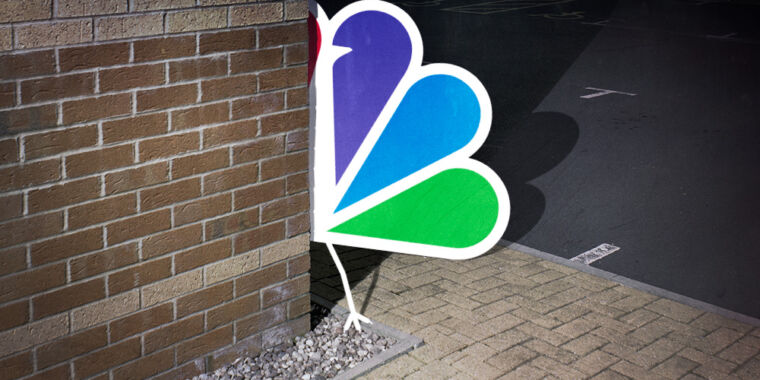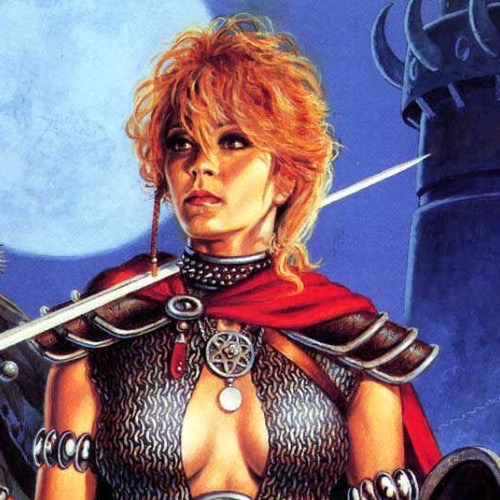It’s “shakeout” time as losses of Netflix rivals top $5 billion | Disney, Warner, Comcast, and Paramount are contemplating cuts, possible mergers.::Disney, Warner, Comcast, and Paramount are contemplating cuts, possible mergers.
Certain irony in these companies splitting their content and now considering merging it back.
I’m glad I could contribute to their lack of profit by simply not paying any of them.
Arr. Well done me matey.
Ahoy!
It seems pointless, but in practice what this is going to lead to is inovators getting absorbed by established media conglomerates.
They would still control it more than they did in Netflix, so it’s still upside in their eyes.
Who’s splitting their content? All these studios have done is merge and monopolize. Now they want to merge further. It’s entirely the wrong strategy.
Dude, you want more streaming services?
No. I want the studios forbidden from owning channels. Make them sell their content to independent broadcasters. Similar to how theaters couldn’t be owned by movie studios. Places like Netflix and Hulu would thrive again, and you wouldn’t have nonsense like Zaslav shoving content into the garbage for a tax write off.
Hulu is owned by studios. It was a joint venture between ABC, NBC, and Fox. After Disney(ABC) bought Fox, Comcast(NBC) sold its share to Disney.
Channels are TV Programmers have. Studios technically can be independent of the programmer channel since the programmer orders the rv show production from the studio. The distribution platform was cable or broadcast (over the air). What folks seem to want is a cable package all over again, just cheaper and without hardware fees and without ads. Not sure how you can have all 3 of those things though. If you cut ads, it probably looks just as expensive if not more expensive than cable. The economics of ESPN worked due to it being bundled in every basic cable package. If you go a la carte I don’t think the sports fans will like the price that is no longer subsidized by all the bundles of folks that don’t watch sports.
The only workable long term strategy is for these companies to compete over service instead of content just like Spotify, YouTube music, Apple music, Pandora, Tidal, etc. If they continue on their current path, everything will wind up being owned by the 2-3 companies with the deepest pockets and we’ll be back to the cable TV model.
It’s basically the cable TV model just with more steps
Need like 5+ services you pay $5-20 a month to instead of one you pay $75 to (numbers made up)
$75 is really borderline coming from the pricepoint we have now. Assuming you could watch nearly everything in one place, it might be a success, but who knows. I believe this is around what YouTube TV and Hulu & Live TV cost.
Except the problem is that cable isn’t there to subsidize the content.
The reason all the studios moved to streaming was because Netflix, Amazon, and Apple weren’t going to cover their total costs.
Implying that these companies are entitled to earn billions just for existing?
I’m not implying that at all.
All I’m saying is that the industry made a certain amount of money per year based on cable and broadcast and it isn’t going to moving forward. Because of this, I see the so called golden age of television ending because there is no one to pay for the development of new shows and movies, even if those costs were inflated by studios.
We can pirate what was already made, but I don’t see the new stuff getting made for anywhere near the budget current shows were being made at.
I don’t know how old you are but if you’re close to 40 or older, you may remember the '90s when music studios were in the same position and completely controlled production and distribution, forcing us to pay $20-$30 per CD (in 1990s dollars) for 13 tracks of mostly filler music. Once MP3s and broadband internet became common, the entire industry was decimated, yet there is more music produced now than ever before.
You’re seeing the same thing happen with tv/movies today. I think it will once again be the studios that suffer not the content.
More music gets made now, but the market is completely different.
Bands have generally switched to individual artists with production more handled by others. A majority of a famous singer’s earnings now comes from ticket sales, causing a spike in ticket prices. There is also the chase for virality, seen a lot in both ring tone rap at the nadir of the industry and songs today based mainly on their TikTok hooks.
TV shows and movies have already lost their “tour” with an overall decline in theatre and we are already seeing a lot of the middle ground of movies that were made 20+ years ago no longer get made.
Content will still get made, and probably at a similar quantity. However, I expect the industry to continue its trend to either micro budget work or something gigantic with no middle ground, just like with music today.
See 10 years ago it was ALL in Netflix and everyone was happy. Studios got to get passive income and we only needed one service. Then the business bros got greedy and decided they needed more money and exclusivity while spending millions to stand up their own inferior services.
Netflix 10 years ago also got amazing deals because most studio executives didn’t understand streaming and just saw it as some additional money on top of broadcast, DVD, and syndication. Those revenue streams are mostly gone.
It’s so good when executives and investors don’t get new stuff, so they don’t come along to squeeze every single penny out of it and choke it to death.
Maybe, but I still want good new stuff.
And it isn’t like executives and investors won’t still get rich on making new stuff, they will just cheaper and shittier new stuff.
That’s part of my point. They don’t have to lift a finger. Just let Netflix pay for the storage, the data centers, the bandwidth. Studios will get something out of it for doing literally nothing. But they got greedy and broke the model.
For their old stuff, sure.
But I’m thinking of new movies and TV shows. What kinds of movies can be made a decade from now?
Yup. Netflix was icing on the cake that was cable. Now streaming is becoming the cake. The cost or revenue of the cake needs to be the same for the biz to run.
Boo fucking hoo. Nothing of value would be lost.
Streaming platforms should not be allowed to produce content and vice-versa. That’s how it was with movie theaters. Ever wondered why there are no Paramount theater, or MGM theater and so on? Because studios aren’t allowed to own theaters.
It’s basically the Live Nation/TIcketmaster issue. They sell the tickets to the events at venues they own. Conflict of interest much?
Live nation/ticketmaster is worse than that, if you try to open a venue without giving then a cut in some way they’ll blacklist you from the industry.
Blacklist them from the… real estate market?
Lol. How exactly does that work? It’s the performers that make venues worth going to, not the venues themselves or the people selling the tickets.
By creating near-universal exclusive contracts with venues and artists.
Ticketmaster/LN offers venues ticketing access to fans who want to buy tickets. Because there’s no real competitor, the venues feel compelled to sign. The contracts have a provision that prohibits the venue from contracting with other ticket sellers.
Ticketmaster/LN offers artists access to venues for a national tour. Because major venues have all contracted exclusively with Ticketmaster/LN, there is effectively no way to tour without participation of venues who exclusively use Ticketmaster/LN. It’s a fait accompli at this point, but Ticketmaster/LN also offer artists participation in their bogus fees, meaning artists get some extra money and don’t have to take the blame (Ticketmaster/LN takes the blame, and some extra profit). The artists’ contracts prohibit working with non-Ticketmaster/LN venues, further locking in the venues.
Venues who do not participate are locked out of artists and fans. Sounds like a blacklist to me.
So, it’s the artist’s fault for whoring themselves out to ticketmaster.
Greed wins again!
Yep.
Like lots of “disruptions” it was just getting ahead of regulations and lobbying to prevent/stall them.
3rd party streaming providers and ending exclusivity contracts would fix streaming overnight, and studios would still make an insane amount of money.
Not many people are going to sign up for a 7th streaming service to watch The Office, but millions of people would have it on if only for background noise.
Have the streaming service pay studios per hour watched.
It’s up to the streamer to balance how much they charge consumers and how much they pay studios to remain profitable.
As of 2020 move studios can own theaters
And this is why the film industry is fucked. I’m a camera operator.
No, generative AI is. Why get props, lighting, actors, etc. when you can just not and say you did at a language model connected to a video generation model?
Yeah that too. That’s gonna fuck us in a couple of years. The streaming studios thins is fucking is right now.
Sad to think people might switch to watching meaningless uncanny valley slop. Then again reality TV won over shows with actual vision.
Uhh, no.
Movies have sucked long before AI came out.
Kaufman even commented on it saying that AI can do a better job than writers because writers have been making the same formulaic shit for years.
I think you responded to the wrong comment. I said nothing about the quality of the film industry’s output, only that it is going to be replaced.
yeah exactly. and hopefully being banned from making shows will motivate them to finally work on their terrible UIs. it’s so annoying that so many streaming services still lack basic functionality and have almost no customization options.
its so insane these companies are competing with each other over what’s on their service instead of how pleasant it is to use their service.
Yep. Because as long as the content is exclusive, the ui isn’t a selling point.
Because studios aren’t allowed to own theaters.
Says who?
Says the US Supreme Court. But not anymore.
https://screenrant.com/movie-studios-owning-theaters-rule-court-decision/
Lol. They’re not dealing with boomers who don’t know how to pirate anymore. We grew up learning how to pirate as kids who won’t deal with that bullshit.
I wish. Many kids today seem clueless about that. Many don’t even get how file systems work.
This is very true, and I’m betting a big part of why streaming services are doing this is they know they can get away with it more than they could have with earlier generations who just pirate everything when the services aren’t worth what they cost.
They still know how web browsers work.
All it takes is a trip over to fmovies and you have more content than any paid streaming service.
No account required. No CC info required. It’s a testament to how stupid people who pay for shit are.
lol I was just yesterday saying that I fully expect these to fold and all the content to go back to Netflix where the studios can earn passive income with no more expense than paying their lawyers to write contracts.
Why aren’t people using our service? Should we lower prices? Provide better shows and services? No no, we’re business people not people making a product. Cut and merge!
With our enshittification powers combined…
This is the best summary I could come up with:
The world’s largest traditional entertainment companies face a reckoning in 2024 after losing more than $5 billion in the past year from the streaming services they built to compete with Netflix.
Disney, Warner Bros Discovery, Comcast and Paramount—US entertainment conglomerates that have been growing ever larger for decades—are facing pressure to shrink or sell legacy businesses, scale back production and slash costs following billions in losses from their digital platforms.
Beyond their streaming losses, the traditional media groups are facing a weak advertising market, declining television revenues and higher production costs following the Hollywood strikes.
But as the traditional media owners struggle, Netflix, the tech group that pioneered the streaming model over a decade ago, has emerged as the winner of the battle to reshape video distribution.
“For much of the past four years, the entertainment industry spent money like drunken sailors to fight the first salvos of the streaming wars,” analyst Michael Nathanson wrote in November.
Earnings for its most recent quarter soared past Wall Street’s expectations as it added 9 million new subscribers—the strongest rise since early 2020, when Covid-19 lockdowns led to a jump.
The original article contains 933 words, the summary contains 187 words. Saved 80%. I’m a bot and I’m open source!
Here’s an idea, friendly to corps because it’s the only damn way it would happen. A “nonprofit” foundation with the backing of all major studios. The studios provide the infrastructure while the “nonprofit” uses most of their low subscription fee to pay for content. The rest goes towards market research that is provided to the studios and open sourced at the end of each year.
How is this friendly to corps lol
Aren’t most of these companies too big to merge with each other?
Not if we cut their dicks off.
I like your style
FWIW, I meant that literally.
No company is too big to merge with another company here in the land of the free where corporations are people and humans are worthless trash!
Quick, corps, double down on enshittification so we never are enticed to give you corporate clusterfucks another chance to deceive us.
Honestly though, the fact that enshitfication was ALWAYS the plan for these businesses is why we shouldn’t of let them get as much market share in the first place









